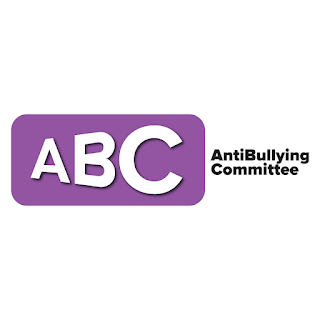Why don’t’ kids report bullying? Five Reasons Why and What Adults Can Do About It
There’s good evidence that young people often don’t report bullying to adults. Children are adept at hiding bullying-related behaviors and the unequal “shadow” power dynamics that can exist among them. Because of this secrecy, adults underestimate the seriousness and extent of bullying at their schools.
Schools cannot help if children don’t entrust them with
information. So why don’t children report bullying?
Research Shows That Adults Rarely Intervene
There’s a catch-22: Students don’t tell because they
don’t see adults helping, but adults can’t help if students don’t tell them
what is going on in their peer groups.
The perception that adults don’t act may lead students to
conclude that adults don’t care, or that there are different standards for
adults’ behavior than for young people’s. In the workplace, shoving co-workers
in the hallway would not be tolerated. Yet many adults believe that young
people need to “work out” bullying problems like these on their own. This
belief may promote a “code of silence” about abusive behavior. A logical
consequence would be the failure of students to report other dangers, such as
knowledge about a weapon at school.
Students Fear Retaliation and a Reputation as a “Rat”
Fear of retaliation might be especially the
case about reporting popular students who bully. There’s evidence that
well-liked and successful children can be the most skilled at bullying and at
escaping detection.
They Don’t Want to Lose Power
Students may not report that they or their friends bully
because they don’t want to lose the power they gain through controlling others.
They Don’t Recognize Subtle Bullying
Students may not report more subtle, indirect, and
relational types of bullying (such as deliberately excluding peers or spreading
rumors) because they don’t realize that these are also unfair, unequal ways to
treat others.
They Feel Ashamed, Afraid, or Powerless
Students may not report being victims of bullying because it
makes them feel ashamed, afraid, and powerless. Over time, they may come to
feel they deserve to be bullied. This may be particularly true of children in
fourth grade and up.
Because adults rarely intervene, young people may come to
believe they can bully without any consequences. Many believe that “acting bad”
pays off. In fact, it may win them status with others, as children do act more
friendly and respectful toward those who bully.
What Can Adults Do?
If we want children to talk to us and ask for help, we need
to invite them to report. And effective adult follow-through is critical. This
means “walking the talk” of bullying prevention and addressing the power
imbalances that put children who bully, those who are bullied, and bystanders
at risk of perpetuating abuse. Bringing children who bully and those they bully
into the same room to talk is not advisable. Intervening, making plans for
behavior change, and continuing to check in on an individual basis with the
students involved is best.
Adults can also give young people tools to help them
evaluate when and how to report. Teaching about the distinction between
reporting (telling to keep someone safe) and tattling (telling to get someone
in trouble), for example, can help students make responsible decisions. This,
in turn, can empower everyone in schools to help prevent inequity and
suffering.
-----------------------------------------------------
¿Por qué los niños no reportan los casos de bullying?
Cinco razones y lo que pueden hacer los adultos al respecto.
Hay buena evidencia de que los jóvenes normalmente no
reportan el bullying a los adultos. Los niños son expertos en esconder todo lo
relacionado a los comportamientos de bullying y a las dinámicas del poder
desigual que pueden existir entre ellos. Por esta razón, los adultos no le dan
mucha importancia al bullying dentro de las escuelas.
Las escuelas no pueden hacer nada al respecto si los niños
no confían en algún adulto para compartir la información necesaria. Así que
¿por qué no reportan el bullying?
Las investigaciones demuestran que los adultos rara vez intervienen
Hay una situación sin salida: Los alumnos no dicen porque no
ven que los adultos hagan algo, pero los adultos no pueden ayudar si los
alumnos no les informan que es lo que está pasando en el grupo de
compañeros.
La percepción de que los adultos no actúan puede llevar a
los estudiantes a concluir que al adulto no le importa, o que hay diferentes
estándares de comportamiento para los adultos que para la gente joven. Empujar
a los compañeros en los pasillos no debería ser aceptable, sin embargo, muchos
adultos creen que los jóvenes necesitan “resolver” solos los problemas de
bullying, como el mencionado anteriormente. Esta creencia puede promover que se
genere un “código de silencio” sobre el comportamiento abusivo. Y una
consecuencia lógica al respecto sería que los alumnos no reporten otras
situaciones de mayor riesgo, como el saber sobre armas en la escuela.
Los alumnos temen a posibles venganzas
El miedo a la venganza puede darse al reportar a estudiantes
que bulean. Hay evidencia que los niños que caen bien y que son exitosos pueden
ser propensos a molestar o acosar y pasar desapercibidos.
No quieren perder poder
Tal vez no reportan que ellos o sus amigos bulean porque no
quieren perder el poder que ganan al controlar a otros.
No reconocen el bullying sutil
Los alumnos tal vez no reportan los tipos de bullying
indirectos o más sutiles (como exclusión o rumores) porque no se dan cuenta que
estos también son maneras injustas y desiguales de tratar a otros.
Se sienten avergonzados, temerosos o sin poder
Tal vez no reportan el ser víctimas de bullying porque se
sienten avergonzados, sin poder y con miedo. Con el tiempo pueden sentir que
merecen ser buleados. Esto puede ser real para niños de cuarto año en
adelante.
Porque los alumnos raramente intervienen, los jóvenes pueden
creer que pueden bulear sin tener consecuencias. Muchos creen que “actuar mal”
si deja algo. De hecho, puede hacerles ganar estatus con otros, ya que los
niños actúan más amigables y respetuosos hacia los que bulean.
¿Qué pueden hacer los adultos?
Si queremos que los niños nos hablen y pidan nuestra ayuda,
necesitamos invitarlos a reportar. Y un seguimiento efectivo por parte del
adulto es vital. Esto significa “hacer lo que decimos” sobre la prevención de
bullying y atender la diferencia de poderes que ponen los niños que bulean, a
los acosados, y a los observadores evitando un abuso perpetuo. No se recomienda
poner en un mismo cuarto al niño que bulea con el acosado. Lo mejor es
intervenir, hacer planes para cambiar el comportamiento, y continuar revisando
de manera regular e individual con los alumnos involucrados.
Los adultos también pueden dar herramientas a los jóvenes
para ayudarlos a evaluar, así como mostrar cuándo y cómo reportar una situación
de bullying. Enseñarles la diferencia entre reportar (decir para poner a
alguien a salvo) y chismear (decir para meter a alguien en problemas), puede
ayudar a los alumnos a tomar decisiones responsables. Y así empoderar a todos
en la escuela para ayudar a prevenir la inequidad y el sufrimiento.
Si sabes de algún caso de bullying te invitamos a reportarlo
con la persona del comité de antibullying de tu sección o puedes utilizar el
reporte anónimo que se encuentra en la página de edline, recuerda que entre más
información nos proporciones más efectiva será nuestra intervención.
¡Juntos podemos hacer la diferencia!





Comments
Post a Comment